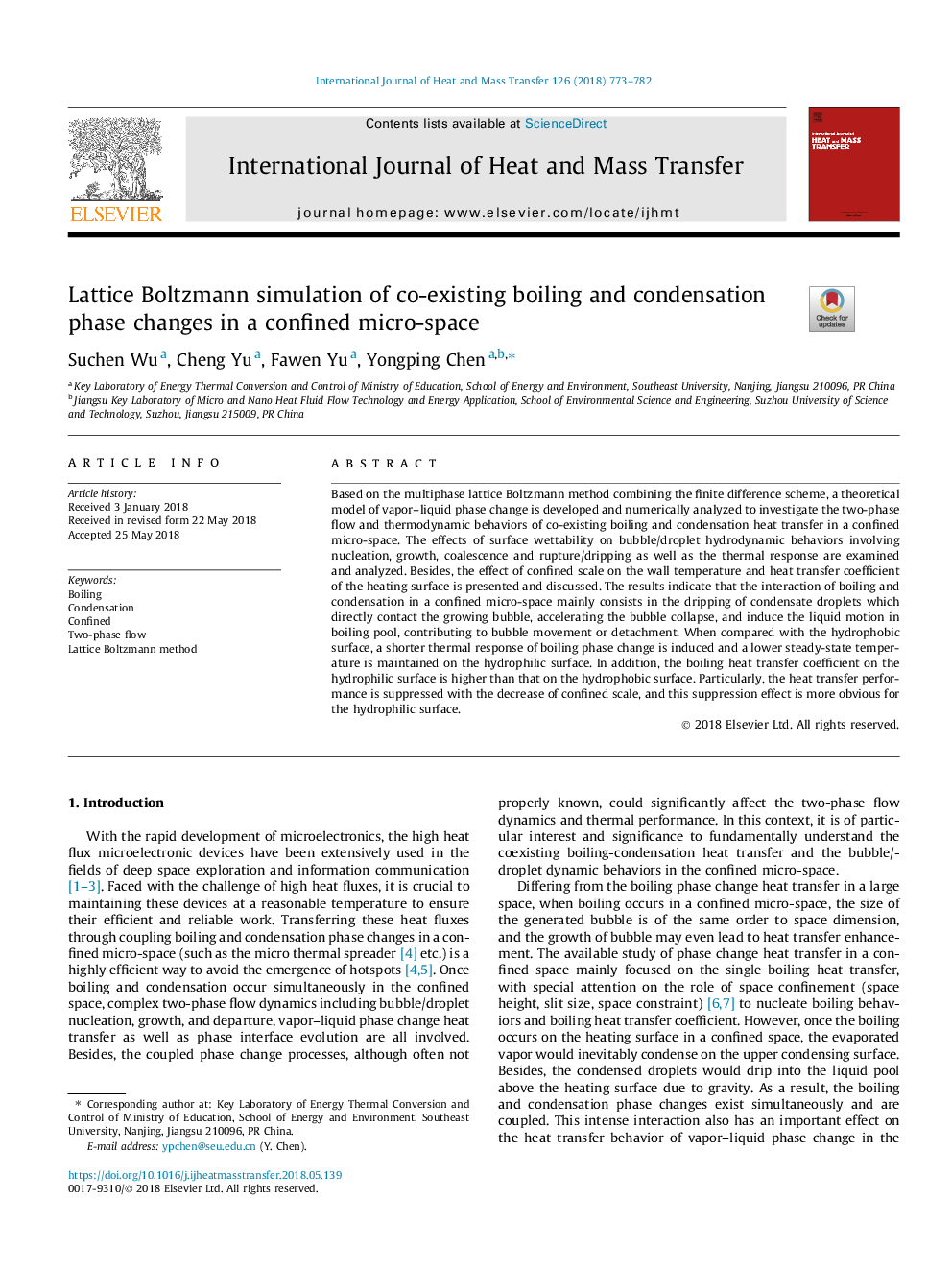| Article ID | Journal | Published Year | Pages | File Type |
|---|---|---|---|---|
| 7053907 | International Journal of Heat and Mass Transfer | 2018 | 10 Pages |
Abstract
Based on the multiphase lattice Boltzmann method combining the finite difference scheme, a theoretical model of vapor-liquid phase change is developed and numerically analyzed to investigate the two-phase flow and thermodynamic behaviors of co-existing boiling and condensation heat transfer in a confined micro-space. The effects of surface wettability on bubble/droplet hydrodynamic behaviors involving nucleation, growth, coalescence and rupture/dripping as well as the thermal response are examined and analyzed. Besides, the effect of confined scale on the wall temperature and heat transfer coefficient of the heating surface is presented and discussed. The results indicate that the interaction of boiling and condensation in a confined micro-space mainly consists in the dripping of condensate droplets which directly contact the growing bubble, accelerating the bubble collapse, and induce the liquid motion in boiling pool, contributing to bubble movement or detachment. When compared with the hydrophobic surface, a shorter thermal response of boiling phase change is induced and a lower steady-state temperature is maintained on the hydrophilic surface. In addition, the boiling heat transfer coefficient on the hydrophilic surface is higher than that on the hydrophobic surface. Particularly, the heat transfer performance is suppressed with the decrease of confined scale, and this suppression effect is more obvious for the hydrophilic surface.
Related Topics
Physical Sciences and Engineering
Chemical Engineering
Fluid Flow and Transfer Processes
Authors
Suchen Wu, Cheng Yu, Fawen Yu, Yongping Chen,
